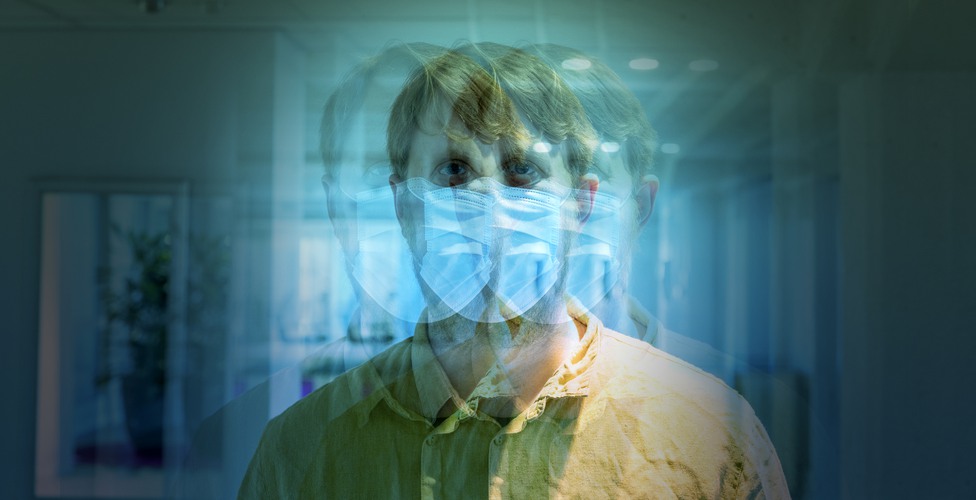In a new study, researchers from the University of Skövde have examined whether the covid-19 pandemic really affected our dreams as much as the media highlighted. The answer is no. Despite increased worry and anxiety during lockdowns and other miseries, the pandemic was not often reflected in our dreams or made our dreams significantly more negative.

How were our dreams affected during the pandemic? Almost not at all according to a new study at the University of Skövde. (The image has been manipulated)
Early reports in 2020 suggested that people were experiencing more nightmares and negative dreams due to and linked to the pandemic. However, the reports were based on questionnaire studies where participants did not answer questions about their dreams immediately after waking up.
Because we are bad at remembering our dreams accurately if we pay no attention to them, questionnaires are not the best or most reliable method to measure dream content. This is argued by Katja Valli, professor of cognitive neuroscience at the University of Skövde and one of the researchers behind the new study which shows that our dreams were not affected by the pandemic to the extent we previously believed.
“Research shows that we rarely remember our dreams in detail after waking up and we quickly forget the dreams we have had if we do not pay attention to them. With questionnaires, people tend to answer based on their assumptions about their dreams rather than the actual dreams," says Katja Valli.
We are bad at remembering dreams
So, when questioned about our dreams later on, we seldom recall them vividly, and the vast majority of our past dreams have already slipped from memory. People tend to answer questions based on what they think they have dreamt about, but they actually no longer have reliable access to their dreams. Therefore, their answers become unreliable and more based on our beliefs about our dreams than on our actual dreams.
In a diary study, participants are instead instructed to pay attention to dreams and write them down immediately after waking up, as detailed as possible. Dream content is therefore much more accessible and collected more systematically than in questionnaire studies.
The diary method yielded new results
In the new study, researchers, instead of questionnaires, used the diary method where participants, over a two-week period, immediately wrote down their dreams upon waking up. The results were then compared with dreams collected in the same way before the pandemic.
Surprisingly, the researchers found no significant increase in threatening dreams or disease-related themes in dreams during the pandemic compared to before the pandemic.
“Only a small proportion of dreams, about 11 percent, contained direct references to the pandemic. However, in those dreams, there were more threats and disease-related themes compared to those without pandemic references. Thus only a small proportion of dreams was affected, and the majority of our dreams remained similar to before the pandemic," says Katja Valli.
Provides important insights for future research
She explains that our dreams are complex and influenced by a variety of factors. The new research results provide important insights not only into how the pandemic affected our dreams but also into the importance of using the right methods to investigate such a complex phenomenon as dreams.
This could have far-reaching consequences for understanding how large-scale societal events that cause stress affect our sleep and mental health, argues Katja Valli.
“Our results point to the need to deepen our understanding of the world of dreams and how it is affected by societal events such as the pandemic," concludes Katja Valli.
The study was published in the journal Consciousness and Cognition and is available in its entirety via the link: Viral simulations in dreams: The effect of the COVID-19 pandemic on threatening dream content in a Finnish sample of diary dreams



